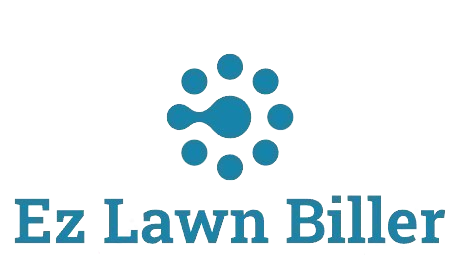Ensure your lawn service business stays compliant and thrives with our ultimate guide, covering essential regulations, best practices, and efficient billing solutions.
The Ultimate Guide to Stay Compliant for Lawn Services
Running a lawn care business involves more than just providing top-notch services to your clients; it also entails navigating a complex landscape of regulations and compliance issues. In this comprehensive guide, we will delve into the essential aspects of compliance for lawn care services, including local and state regulations, insurance requirements, and billing practices that can keep your business not only compliant but also thriving. By understanding the legal landscape and implementing best practices, you can focus on delivering exceptional lawn care services while minimizing risks. From tips on maintaining compliance with labor laws to leveraging technology with modern lawn service software, this guide will provide actionable insights for lawn service providers of all sizes.
As the lawn care industry expands, the importance of compliance cannot be overstated. Non-compliance can lead to significant penalties, loss of business licenses, and damage to your reputation. Therefore, understanding the nature of regulatory requirements and how to meet them is vital for your business’s longevity. We will explore the key compliance areas you need to focus on, including licensing, safety regulations, and tax obligations. Additionally, we will discuss how using specialized tools like a lawn billing software can help streamline your business operations, ensuring that you remain compliant while maximizing efficiency.
Understanding Local and State Regulations
One of the first steps in maintaining compliance in the lawn care industry is familiarizing yourself with local and state regulations that govern your operations. These regulations can vary significantly depending on your location and may include licensing requirements, pesticide application regulations, and noise ordinances.
For instance, many states require lawn care professionals to obtain a specific license or certification to apply pesticides. It’s essential to research the requirements in your area, as failing to comply can result in hefty fines. Additionally, some municipalities have restrictions on the hours during which lawn care services can be performed due to noise ordinances. Understanding these regulations will help you avoid potential legal issues.
Moreover, keeping abreast of changes in legislation is crucial. Regularly check with your local government or industry associations for updates. Engaging with local lawn care associations can provide valuable insights and resources for staying compliant. Incorporating these practices into your business operations will not only keep you compliant but also enhance your credibility among clients.
Insurance and Liability Considerations
Insurance is another vital aspect of compliance for lawn care businesses. Having the right insurance coverage protects you from potential liabilities that can arise during service delivery. General liability insurance is essential, as it covers property damage and bodily injury claims that may occur while you are working on a client’s property.
In addition to general liability insurance, consider obtaining professional liability insurance. This coverage is particularly important if your services include landscaping or design services, where a claim could arise from unsatisfactory work or negligence. It’s wise to consult with an insurance advisor who understands the lawn care industry to ensure you have adequate coverage.
Moreover, worker’s compensation insurance is crucial if you have employees. This insurance covers workplace injuries and is often a legal requirement. Ensure that all your employees are covered to avoid potential lawsuits and compliance issues. By prioritizing insurance and liability considerations, you can safeguard your business and maintain compliance with local laws.
Labor Laws and Employee Compliance
Staying compliant with labor laws is another critical aspect of running a lawn service. This includes understanding wage and hour laws, employee classifications, and health and safety regulations. For instance, if you hire seasonal workers, you must ensure they are classified correctly as either employees or independent contractors.
Moreover, familiarize yourself with the Fair Labor Standards Act (FLSA) concerning minimum wage and overtime rules. It’s essential to keep detailed records of hours worked by employees to ensure compliance with wage laws. Failure to do so can result in costly penalties and legal issues.
Additionally, safety regulations should be at the forefront of your operations. The Occupational Safety and Health Administration (OSHA) has specific guidelines for lawn care companies, including requirements for equipment safety, training, and reporting injuries. Implementing regular safety training for your team not only enhances compliance but also promotes a culture of safety within your business.
Effective Billing Practices for Compliance
Implementing effective billing practices is crucial for maintaining compliance and ensuring steady cash flow in your lawn care business. Using a dedicated lawn service software can streamline your billing processes, making it easier to track services provided and payments received.
Automating invoicing with the help of a lawn billing software allows you to create accurate invoices quickly and reduce the risk of human error. This software can also help you set up recurring billing for clients who require regular services, ensuring that you are paid consistently without additional administrative work.
Moreover, providing clients with clear and detailed invoices enhances transparency and trust. Include breakdowns of services rendered, hours worked, and any applicable taxes. By maintaining a professional image through consistent invoicing, you reinforce your commitment to compliance and customer satisfaction.
Leveraging Technology for Compliance Management
In today’s digital age, leveraging technology can significantly enhance your compliance management efforts. A lawn service app can aid in tracking employee hours, scheduling services, and managing client communications effectively. These tools ensure that you keep accurate records, which is essential for compliance audits.
Moreover, some lawn service apps offer integrated billing features, allowing you to manage all aspects of your business from one platform. By investing in a comprehensive lawn company computer program, you can streamline operations and reduce the likelihood of compliance issues arising from administrative errors.
Additionally, consider utilizing cloud-based solutions that enable you to access your data from anywhere. This flexibility allows you to remain organized and responsive, ensuring that compliance-related tasks are completed on time. Embracing these technologies will not only improve your compliance efforts but also enhance overall business efficiency.
Best Practices for Staying Compliant
To ensure ongoing compliance in your lawn care business, consider implementing the following best practices:
- Regular Training: Schedule regular training sessions for your employees on compliance issues, including safety protocols and legal responsibilities.
- Documentation: Maintain thorough records of all services provided, employee hours, and safety training completed.
- Engage with Professionals: Consult with legal and accounting professionals who specialize in the lawn care industry to stay informed about regulatory changes.
- Utilize Compliance Checklists: Develop checklists that cover essential compliance areas, ensuring that nothing falls through the cracks.
By adopting these practices, you can foster a culture of compliance within your business, minimizing risks and ensuring that you are prepared for any regulatory audits.
Conclusion
In summary, staying compliant in the lawn care industry requires a multifaceted approach that encompasses understanding regulations, securing appropriate insurance, adhering to labor laws, and implementing effective billing practices. By prioritizing compliance, you not only protect your business from legal issues but also enhance your reputation in the market.
As you navigate the complexities of compliance, remember that leveraging technology such as lawn billing software can simplify processes and help you maintain accurate records. The insights shared in this guide should serve as a foundation for your compliance strategies, allowing you to focus on delivering outstanding lawn care services while ensuring that your business remains compliant and successful.
Ready to take your lawn care business to the next level? Consider investing in tools like [Lawn Biller Software](https://ezlawnbiller.com/) to streamline your billing process and enhance compliance. Start today and watch your business thrive!




